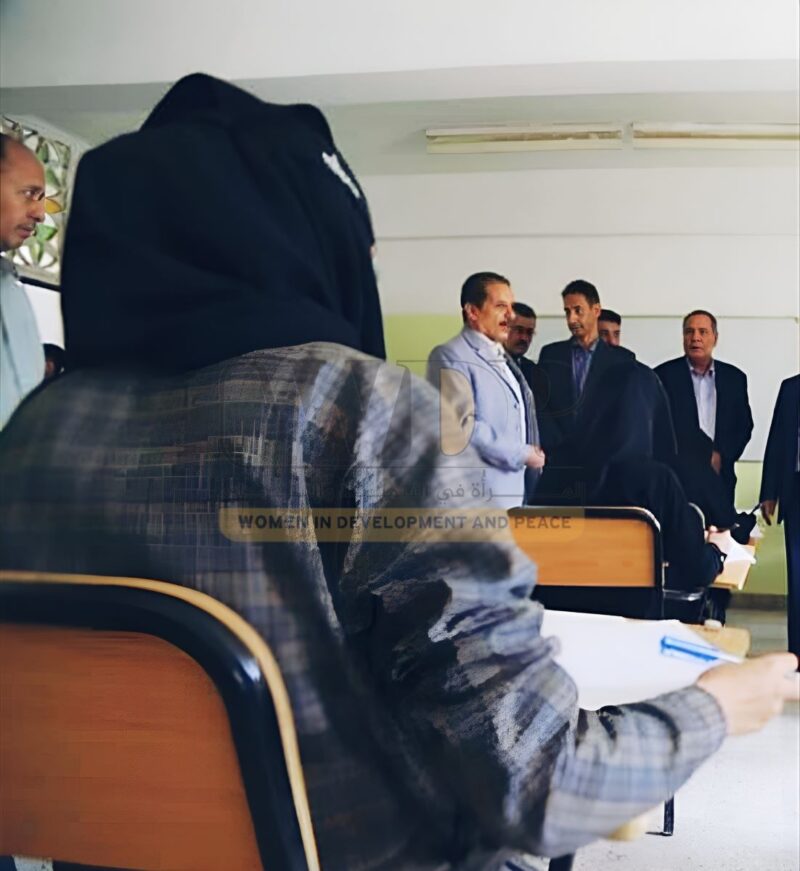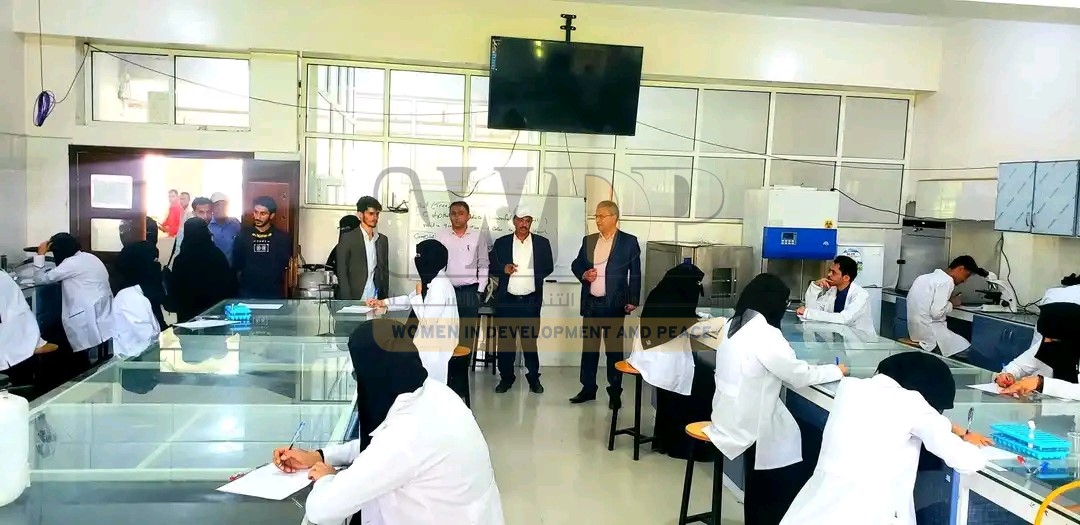Haneen Al-Wahsh – Women in Development and Peace
The higher education sector is a fundamental pillar of comprehensive and sustainable development worldwide, and a cornerstone for building the future of any country. Its importance lies in many aspects, most notably the development of human resources. Higher education contributes to graduating qualified human cadres with high skills that meet the needs of the labor market in various fields, which reduces unemployment and enhances productivity.
Higher education institutions are also major centers for scientific research and innovation, meaning they are implicitly empowered to find solutions to the challenges facing Yemen if given the opportunity. This is in addition to their contribution to the development of the national economy by graduating qualified cadres who contribute to establishing new projects and developing various economic sectors.
Higher education plays an ideal role in promoting women’s empowerment by giving them equal opportunities for learning and development. It enhances their participation in various fields of life and contributes to their economic, social, and political empowerment, bringing them closer to decision-making positions.
Higher education derives its importance in any country as the primary development resource by producing human cadres, especially female cadres. Women’s access to high levels of education enables them to overcome many of the obstacles imposed by coercive circumstances. However, higher education in Yemen is experiencing a tragic reality that weighs heavily on the most vulnerable groups, such as women.
Scarcity of Female Employees in the Ministry
When you visit the Ministry of Higher Education, the first thing you notice upon entering is the number of male employees compared to the small number of women. The number of female employees does not exceed 38, including contractors.
We spoke with Dr. Zar’a Saif, general manager of the Women’s Department at the Ministry’s office, to get brief answers. She stated that the Women’s Department in the Ministry is still under establishment, and its tasks do not extend beyond the Ministry’s office itself.
Dr. Zar’a says, “The weak budget allocated to the office hinders the implementation of many activities,” referring to the department’s functions concerned with enhancing women’s presence in the Ministry.
Plans to integrate women into higher education in Yemen face significant challenges, despite the Ministry of Higher Education operating from Aden for over seven years.
According to Zar’a, the Ministry’s work from Aden began in 2016, which, in her view, justifies the absence of many departments. She says, “We are an administration in the process of being established. Since the ministry began its work in 2016, it has gradually started to create departments and administrations.”
The responses of the Director General of Women in the Ministry of Higher Education led us to observe the level of absence and shortcomings in the Ministry’s plans and policies related to women’s participation in higher education. This is a natural conclusion, as evidenced by the conditions experienced by the department concerned with women within the Ministry itself.
Scholarships and Marginalization of Women’s Rights
Every year, the Ministry of Higher Education and Scientific Research announces the names of Yemeni students who have been awarded scholarships from various countries around the world in various disciplines and fields. However, we notice that most of the winners are males compared to the number of females, despite the Ministry’s confirmation that the selection process is limited to students applying for scientific disciplines, in line with the scholarship policy previously announced by the Ministry.
Looking at the results of the general secondary school certificate in past years, we will see that girls dominate the top lists. However, official statistics show a noticeable decrease in female participation rates in university education compared to males, as well as in scholarships abroad.
We asked Zar’a about the level of women’s empowerment in scholarships, and she replied, “The Ministry does not take gender into account; women are like men. Everyone applies for scholarships through the methods and procedures followed by the Ministry, and the criterion for acceptance is academic excellence.”
For his part, Dr. Mansoor Al-Qudsi believes that enhancing women’s presence in the academic sector begins with giving them scholarships. He points out that most of the top students in secondary school and university in Yemen are girls. However, the percentage of scholarships they receive, whether domestically or internationally, is very small compared to males.
Al-Qudsi believes that nepotism controls the performance of the Ministry of Higher Education appallingly. This, in his view, reinforces the dominance of the patriarchal pattern on the outputs of higher education, through the network of relationships that men possess, which women lack.
This discussion leads us to recognize what the Ministry lacks, such as many other institutional governance controls and limitations, as well as the adoption of gender criteria in its strategies and plans. This would give vulnerable groups, such as women, the marginalized, and people with disabilities, a share of empowerment.
Unqualified Infrastructure
The ongoing conflict in Yemen and its repercussions have had catastrophic effects on all aspects of life, including the higher education sector. The armed conflict has led to the destruction of many university, college, and institute buildings, which has significantly disrupted the educational process. The collapse of the economic situation has also led to the interruption of teachers’ salaries for long periods, prompting many of them to migrate or search for other job opportunities.
Despite these enormous challenges, the Ministry of Higher Education is still making significant efforts to restore the work of higher education institutions in many Yemeni governorates. It is also working to rehabilitate buildings damaged by the conflict in cooperation with international organizations.
Academics believe it is difficult to say with certainty that the infrastructure of higher education in Yemen meets the needs of women working in and affiliated with the sector.
Dr. Imad Al-Saqqaf says, “The infrastructure does not meet the needs of both females and males.” However, he points out that there are additional challenges for females, including a lack of facilities dedicated to women to confront discriminatory societal practices that limit women’s activity and freedom. There is also a lack of childcare opportunities for working women or those enrolled in university education.
Al-Saqqaf confirms that women are completely absent from student support programs, which the Ministry of Higher Education can provide, in his opinion. He points to the scarcity of training opportunities for working women and the deprivation of secondary and university graduates from scholarships or external mission programs for learning and training.
Challenge of Employment
Dr. Najwa Al-Amiri believes that the percentage of female academics is very low compared to males. She attributes this to the shortcomings of the role of higher education in encouraging women, whether by excluding female university graduates from external scholarships to complete their higher education or by not granting them job grades.
She told us the story of her struggle to obtain a doctorate with the support of her family, emphasizing that she did not receive any job grade, which prompted her to contract with some private universities and institutes.
Najwa works as a lecturer at some private universities for a small amount of money that does not exceed $3 per lecture. She confirms, “I have three lectures per week at three universities, each lecture is two hours a day, so the total I get per week is no more than $9.”
The recovery of the higher education and scientific research sector in Yemen requires great efforts from all concerned parties, including the government, the private sector, and civil society. With concerted efforts, there is great hope to revive this important sector and restore Yemen to its prestigious position in the field of higher education and scientific research.


